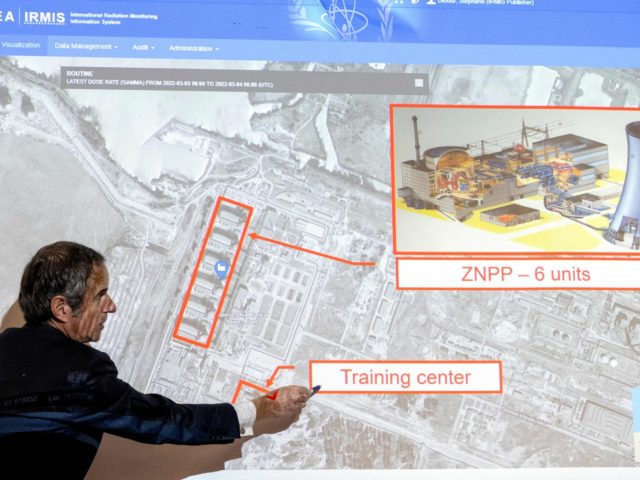Britain’s Prime Minister Boris Johnson and Ukraine’s President Volodymyr Zelensky have held a conference call after Russia allegedly shelled the Zaporizhzhia Nuclear Power Station — Europe’s largest such plant.
While claims around what exactly transpired at the plant and why differ between Ukrainian and Russian sources, both sides at least agree that Europe’s largest nuclear power plant is now in Russian hands.
“No state except Russia has ever opened fire at nuclear power units. For the first time in human history, a terrorist state has resorted to nuclear terror,” Ukrainian leader Volodymyr Zelensky railed, calling for “immediate European action” as the only way to “stop Russian troops.”
The call for “European action”, which would necessarily be led by Emmanuel Macron’s France in an EU context, as the bloc’s leading military power, is interesting, as it may tacitly imply Zelensky believes calling on the NATO alliance, led by Joe Biden’s America, is less likely to bear fruit.
Zelensky also consulted with Boris Johnson, premier of Europe’s leading non-EU military power — besides Russia herself — on the alleged nuclear plant attack, with the Briton denouncing Russia’s “reckless actions”.
Zelensky and Johnson “agreed that Russia must immediately cease its attack on the power station and allow unfettered access for emergency services to the plant,” according to an official readout of the conversation published by the British government.
“The Prime Minister said the reckless actions of President Putin could now directly threaten the safety of all of Europe,” the readout continued, adding that Johnson had pledged to “do everything it could to ensure the situation did not deteriorate further.”
The readout also confirmed that the British government was attempting to convene an immediate meeting of the United Nations Security Council — of which the Russian Federation is a Permanent Member — at which it would be raising the incident.
Russia, for its part, claims the fires reported at Zaporizhzhia were carried out by partisans of “the Kiev nationalist regime” attempting to arrange a “provocation” and that Russian gunfire was in self-defence.
Like other recent claims about the state of their war, such Russian information can be hard or impossible to verify.
“On March 4th, at about 2 a.m., while patrolling a protected area adjacent to the Zaporozhye nuclear power plant, a mobile patrol of Rosgvardiya [Russian National Guard] was attacked by a Ukrainian sabotage group,” alleged the chief spokesman of the Russian defence ministry, Igor Konashenkov, in a Facebook post.
Konashenkov said that “In order to provoke retaliatory fire” the Ukrainians had shot at Russian forces from the windows of a “training complex located outside the power plant”.
After the Russians returned fire, Konashenkov said, the Ukranians set fire to the building and retreated.
The Ukraine government has confirmed that the fire at Zaporizhzhia was at the training facility rather than the plant proper and that there were no casualties — but they insist the fire was started by Russian shelling.
U.S. Energy Secretary Jennifer Granholm has said that the reactors at the station were “safely shut down” and that she has “seen no elevated radiation readings near the facility”.

COMMENTS
Please let us know if you're having issues with commenting.